Every once in a while I stumble over something that opens my eyes wide to a lot of the silliness of secularism that pervades evangelicalism and, in turn, warps the whole of generations. Anthony Bradley points out that there is a crazy movement going on right now within young evangelical circles to shun the suburbs and engage in a “new legalism” of radical faith.
The best I can figure is that somehow suburbs are just bad. (Read Keith Miller on this point) I think there is something bigger than that and it goes beyond evangelicals to, particularly, millenials and those who close out the tail end of Gen X and Y. We’ve made idols of the awesome in our lives. All of us.
Each of us forms in our head an ideal. Instead of enjoying our present where, as CS Lewis noted, we are closest to God, we either look to a future that may or may not be, or we hold on to a past that maybe was not as shiny as we think. Then we surround ourselves with others and, in a culture of Baby Boomer grandparents and their offspring, decide our life will not be fulfilled unless it is in some way awesome.
Back in March, Matthew Lee Anderson wrote about the new radicals in Christianity. These preachers are on an evangelical mission to change the world. They’re wooing in millennials and wayward souls to give up on their mundane existence and surrender all, as the song goes, to Jesus. They want to live like the early church — communal, working in the cities to share God, bending over in a radical faith to do great work for the church.
It’s the same symptom of — and let us be honest — rich white society we see elsewhere. Kids play soccer without score, but keeping one in their heads. Parents compete to get their kids in fancy schools to do fancy things. Mom X brags that her son is going to be a doctor and mom Y brags her son is going to be a high priced lawyer. We have taken on our parents’ dreams for us, added our own dreams to it, and decided that if we don’t do something unique, novel, or mind glowingly awesome we are somehow not fulfilled. This fretting is a luxury of the upper incomes.
And living in the suburbs is just too damn mundane for many of them. Will Seath tried to explain this back in January and I just don’t get it. He writes, in part,
The suburbs came to represent those habits of materialism and isolation. Middle-class families left urban neighborhoods for larger, more secluded homes on the city outskirts, where driveways pushed homes away from the street and garages replaced the semi-public realm of front porches. Few suburbs had a clear neighborhood center. For the first time, it was easy and inexpensive to live, work, shop, learn, and pray in places that were miles apart. Because of the automobile, communities could now be physically separated from deeply rooted social bonds, places of worship, and civic institutions.
Again, this sounds a lot like deciding the grass is greener elsewhere because of what others say. I too have an ideal for small town living with front porches where I know my neighbors. I grew up in Jackson, LA both before and after returning from Dubai. Jackson is one town over from St. Francisville, LA, where Rod Dreher has returned home. Jackson is St. Francisville but poorer. There are no cows tied to cinder blocks in front yards in St. Francisville. Our home had a big front porch. We knew our neighbors. There were two main churches in town. Half my family went to the First Baptist Church and the other half went to the Methodist Church right across the street.
It was wonderful. I’m blessed now to have a front porch and rocking chair.
But it was also what we made of it. What these critiques of suburbs miss and what so much of what Anthony Bradley calls the new legalism misses is that our community is what we make of it. This idea that you have to be a radical Christian living in the bad part of town to show your truth faith is just people who’ve never found themselves trying to find themselves in some way they heard a preacher say would be awesome. So they’ve put on their skinny jeans, flannel shirt in summer, North Face vest, and trucker cap and gone off to share the Lord, or their day’s work, or their confession over beer with friends.
And there’s nothing wrong with that.
David Crowder, whose music I love, has moved into Cabbagetown — a reviving hipster part of Atlanta. I do not know him and have not met him, though I’d love to have a beer with him. But if you know anything about David Crowder, you’d know he’s a perfect fit for Cabbagetown.
There are, however, a lot of young Christians and others may not be, but in the quest to find the Awesome, they go there too. The hipster preachers say they should go forth there. The youth leader says to do it. Their parents have been telling them all their lives they will be special, brave, and bold. So they go. And they waste their existence. Trying to find the God of Awesome they burn out and accept defeat. Some folks are not cut out to be urban dwellers. Some are not cut out to be rural dwellers. Some are just fine living in the suburbs. It should be to each his own, but the perennial quest of the modern age to find yourself makes it difficult to be still and know God.
We’re so busy trying to find Him, we don’t let Him find us.
Maybe it is just me, but I think a whole lot of people are missing the point.
You don’t have to give up everything in life and march through gang land to find Jesus or be awesome. Being a great husband and father works. Being the best burger flipper at McDonalds or the best insurance salesman or the best carpenter or the best tax collector works too. We have made an idol of the Awesome that demands we constantly quest for it instead of building our own community.
In so doing, we start constructing shibboleths to define our community in a way that excludes others.
I know more than one evangelical who has gotten into the radical faith movement and decided that those who are not doing it that way are somehow not as pure a Christian. They’ve decided their gospel is greater. Others in the Christian community, as a reflection of the secular world around us, have gone gung-ho into the organic, whole foods make your own bread from wheat you’ve grown craze and buy raw milk!!!! If you don’t, you are a bad person and your gospel is inferior. Some have fallen head long into adoption in a way that excludes them having their own children and deciding that is their path to salvation. But others too have gone to the opposite extreme and decided that anyone who wants to find success in this world and has ambition in this world is somehow not as good a Christian — as if they cannot, in their pursuits, be successful in life and glorify God along the way.
These are shibboleths people are creating to define their community. If you don’t recycle or believe in global warming or don’t wear skinny jeans or do or do not do a host of other things, you are somehow other. Just as secular communities have divided themselves based on faith in various politics or fashion crazes, Christians are doing it too. We have created shibboleths to the God of Awesome and if you do not relate to that shibboleth then you are not awesome.
Honestly, neither life nor faith are that complicated. Though the world may be, our lives do not have to be. Too many people get in the ditch, over compensate, and land in the other ditch. Christianity is all about moderation, balance, and loving the Lord. The morally superior metrics of urban, suburban, or rural living and the metrics of how much misery you endure in a place you don’t feel comfortable to share the Lord are getting over done. Overcompensating on legalism or grace, shunning those things we ought do because the Lord loves us as we are, and rejecting others because they do not conform to our way of worship or practice of faith is getting overdone, whether that worship and faith is sectarian or secular.
We are called to love our neighbor, love the Lord, and be the best we can be at what we choose for ourselves. We are not all going to be super rich. We are not all going to have awesome jobs. We are not all going to have massive families. We are not all going to be somebody.
We’re just called to be the best us we can be. If moving to the inner-city to build a community of believers for Christ is your thing, have at it. If living in the suburbs, driving 30 minutes to work, and coming home at the end of the day is your thing, have at it. But saying the suburbs are bad or a mundane life is a waste is just judging your awesome to be a better awesome.
Millennials have all been told they will do great things, be awesome people, and contribute mightily in great ways to humanity. Too many of them are, therefore, seeking out that life and burning out.
The truth is that sometimes the great things we are meant to do is get our kids to school on time, get them fed, sit at our desk doing our job, and being good neighbors. It doesn’t take the front porch or the city communal territory to be good neighbors. It takes us willing to make community where we are, by being good neighbors, and willing to give up our shibboleths of what makes one part of our community in order to let in others to enjoy with us.
It’s just not that hard or complicated. God is awesome. But, as Matt Redmond wrote, he’s also the God of the mundane and ordinary. He’ll find you in the mundane and the ordinary just as he found a few guys hauling in fishing nets on a boat and a tax collector and others. And perhaps most importantly, you need not force yourself to go out and suffer for Him. You will be made to care and you will be made to suffer in some ways ordinary and some ways large. Persecution comes with the faith. One need not seek it out.

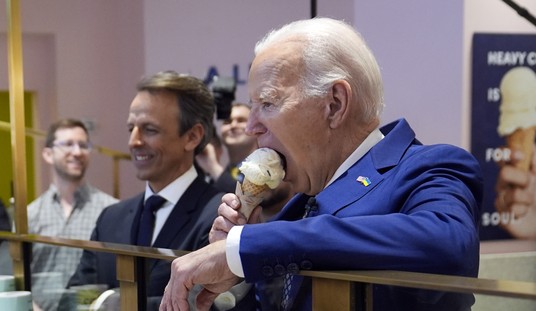


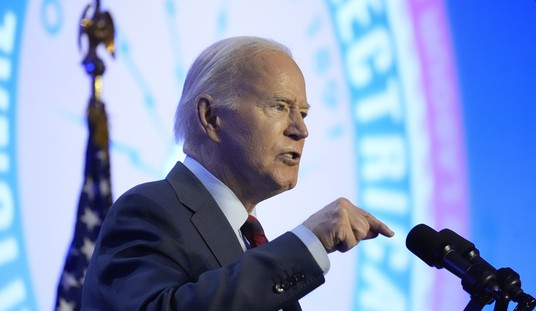
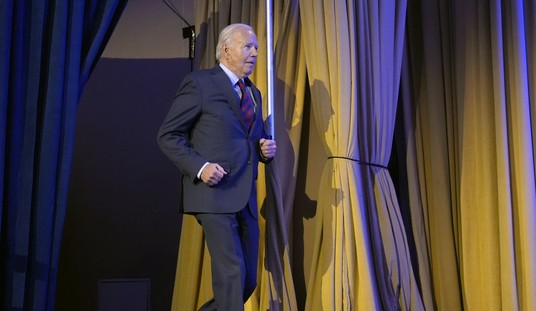
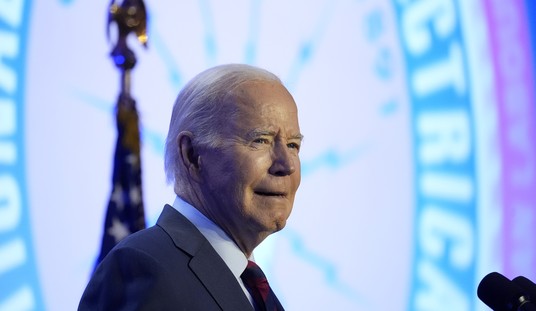


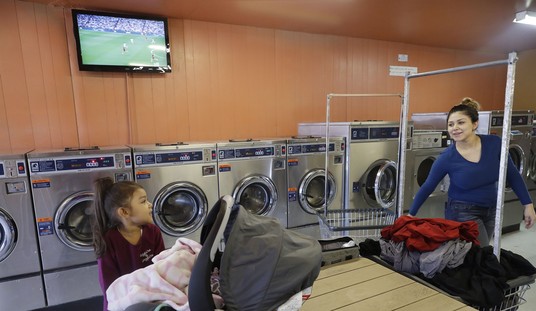


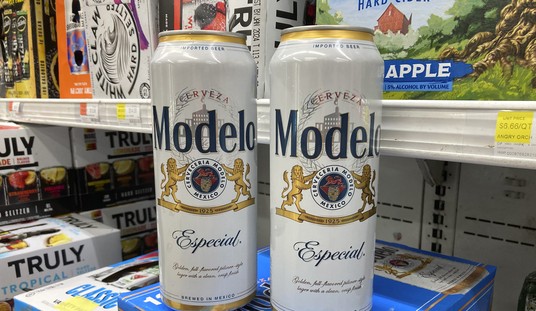

Join the conversation as a VIP Member